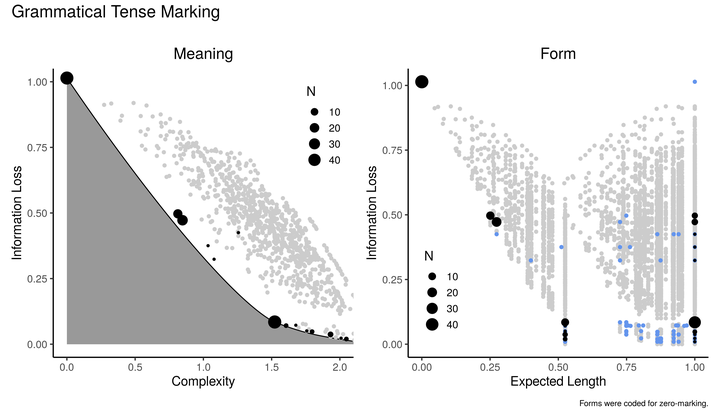
Abstract
Functionalist accounts of language suggest that forms are paired with meanings in ways that support efficient communication. Previous work on grammatical marking suggests that word forms have lengths that enable efficient production, and work on the semantic typology of the lexicon suggests that word meanings represent efficient partitions of semantic space. Here we establish a theoretical link between these two lines of work and present an information-theoretic analysis that captures how communicative pressures influence both form and meaning. We apply our approach to the grammatical features of number, tense, and evidentiality, and show that the approach explains both which systems of feature values are attested across languages and the relative lengths of the forms for those feature values. Our approach shows that general information-theoretic principles can capture variation in both form and meaning across languages.